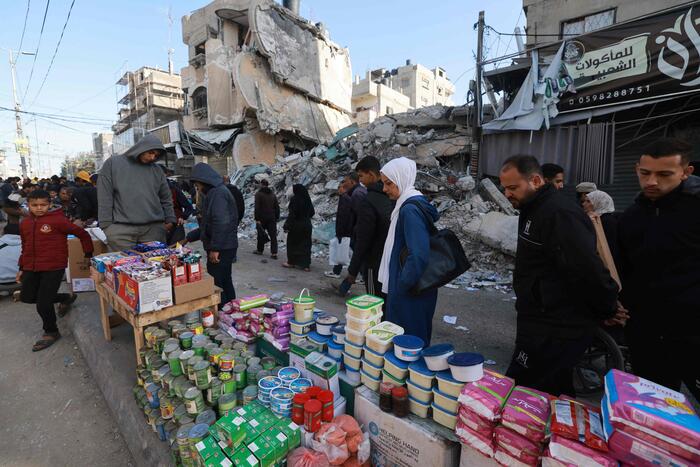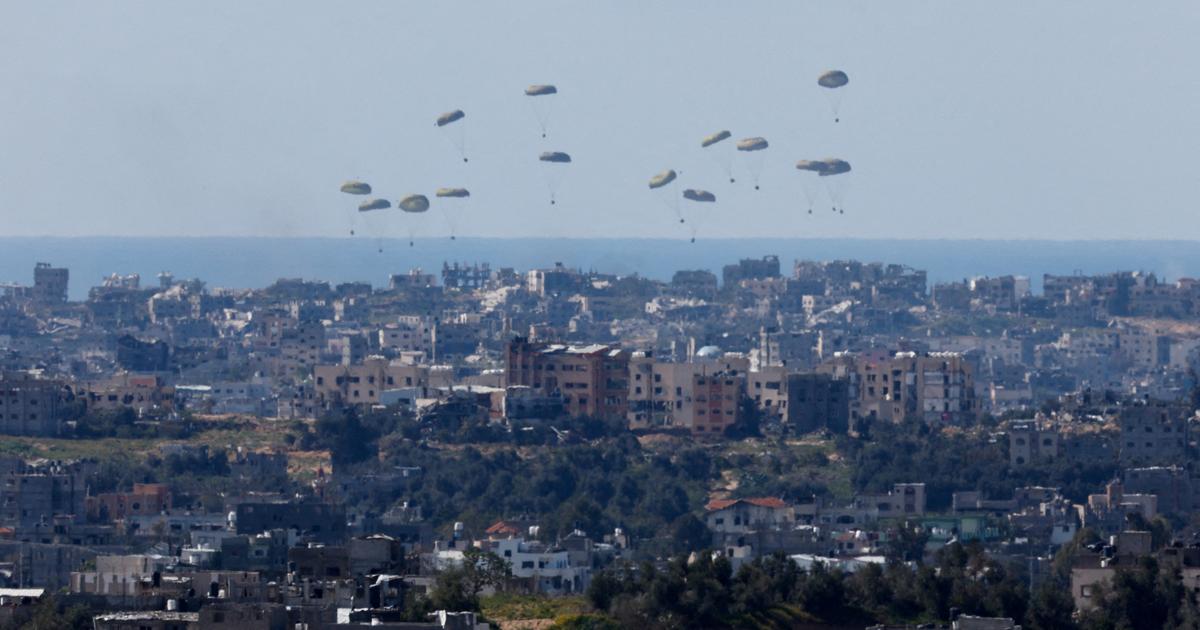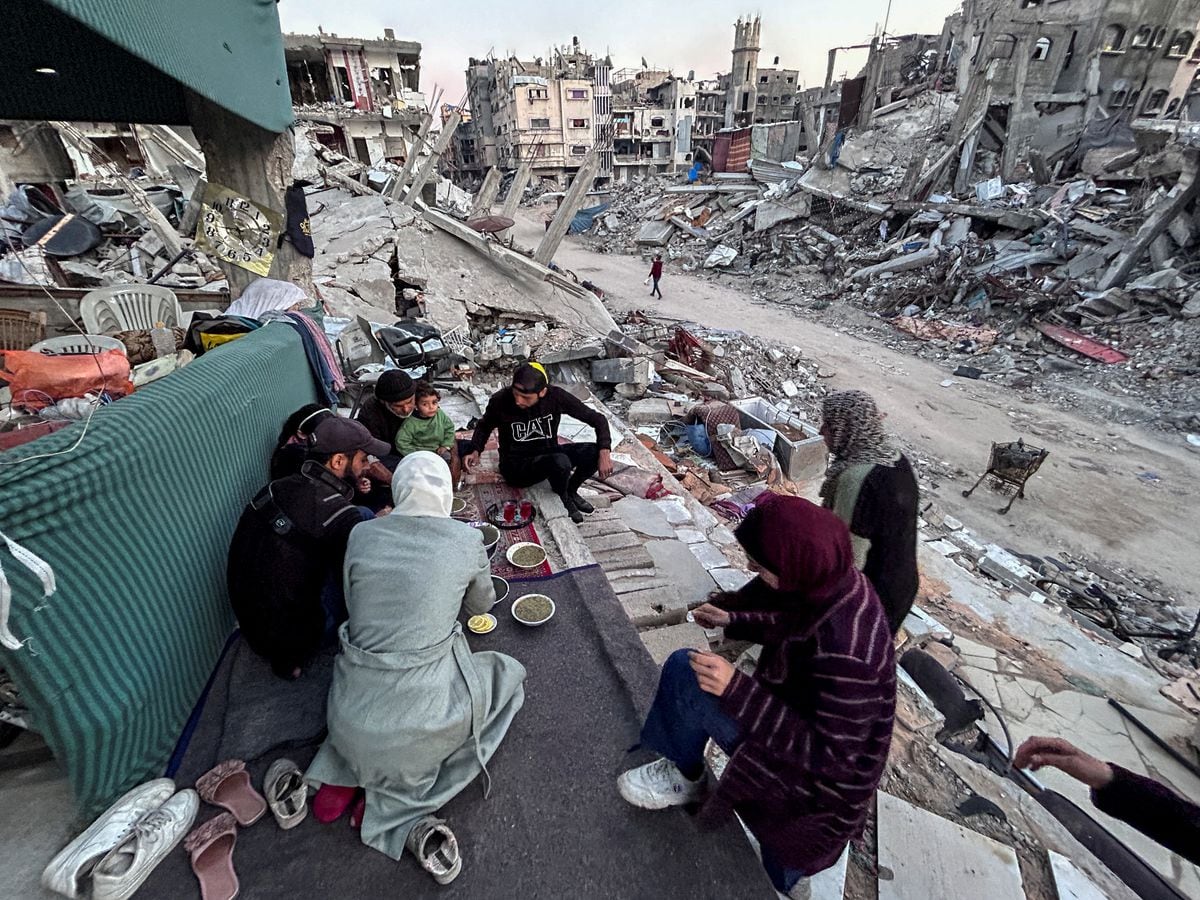The start of the fasting month of Ramadan is a burden for many households in North and West Africa: it makes the situation in the already tense food market even more difficult.
This analysis is available
to IPPEN.MEDIA
as part of a cooperation with the
Africa.Table Professional Briefing - the Africa
Table
first published it
on March 20, 2023.
Governments are trying to ease the situation with export restrictions and price caps.
But that is not always well received by consumers.
Tomatoes, onions and potatoes are only available for the domestic market.
Exports to other West African countries will be restricted: This was decided by the Moroccan government in the run-up to the Islamic month of fasting, Ramadan, which begins on Wednesday, March 22nd.
The temporary export stop is intended to ensure supplies for the Moroccan population, as high fertilizer prices and adverse weather have reduced the supply of vegetables.
Traditionally, during this special time for Muslims, demand for food prices increases.
Mutual invitations to break the fast are forthcoming.
In addition, wealthy Muslims buy larger quantities to donate to those in need.
Price increases for Ramadan – many countries in North and West Africa, most of which profess Islam, are familiar with this.
In Senegal, the majority of the population is Muslim, 97 percent according to the CIA Factbook.
A few days before the start of the month of fasting, President Macky Sall called on retailers to adhere to the maximum prices set by the government.
Table.Media newsletter
Get 30 days free access to further exclusive information from the Table.Media Professional Briefings - the decisive for the decisive in business, science, politics, administration and NGOs.
State promises fair prices
For example, on the doors of small shops for everyday needs, the boutiques, you can often find posters distributed by the government with price lists for onions, potatoes, rice or butane gas.
The motto is printed in the most commonly used national language, Wolof, "Njëg yi" and in French, "Les prix justes".
Refined sugar costs 575 CFA per kilogram, just under 88 euro cents.
But at the market, the Senegalese Mariama Sadio now pays more than double, 1.83 euros, for a kilo of sugar.
Luckily, she says, she stocked up when the price was just 1.53 euros - and thus also well above the official price.
"The price of sugar has been going up for a while, and sometimes it's even hard to find any," Sadio told Table.Media.
The IMF estimates inflation at 9.7 percent for the past year, but considers a drop to around five percent to be realistic for 2023.
Consumers often pay more
Often the dealers would not apply the official prices.
"They say they bought and stocked the groceries at higher prices," Sadio reports.
"And then you have no choice and have to buy at this price." Sadio lives in her mother-in-law's house on the outskirts of Dakar and takes care of six, sometimes up to nine people.
She calculates around 230 euros a month for basic foods such as rice, oil, sugar, milk powder, coffee, mayonnaise, butter, chocolate, cheese, tomatoes, mustard, vinegar, onions, potatoes and vegetables.
Occasionally fish and meat are added.
According to the latest information from the national statistical authority, the average wage in Senegal in the second quarter of 2022 was around 133 euros per month.
Preparations in Ivory Coast
In Ivory Coast, too, the government is trying to calm the population.
According to the CIA Factbook, almost 43 percent of the people there are Muslims.
The country has prepared well for Ramadan, Soumahoro N'Valy, vice president of the National Association for Consumer Protection, told Table.Media.
"The Government, through the Department of Trade headed by Souleymane Diarrassouba, has anticipated the market and stockpiled ahead of the month of fasting."
There is no danger with the prices for sugar, oil or milk.
Four months ago, the government increased subsidies for oil and tomatoes, among other things, because of the war in Ukraine and the resulting pressure on food prices.
In the meantime, 21 products are subsidized by the state, says consumer advocate N'Valy.
He is satisfied with the government, which founded a round table with six consumer protection associations - and that in 2019, long before the Ukraine war.
Inflation in Ivory Coast was most recently 4.8 percent (January 2023), following a downward trend.
In the economically strongest country in West Africa, Nigeria, the situation is very different.
High food prices pushed the inflation rate up to 21.8 percent in January.
The oil power continues to struggle after the elections at the end of February: "The economy is generally ailing," says Nigerian journalist Sam Olukoya Table.Media.
"Price increases are more likely to be located in this context and have less to do with Ramadan." According to media reports, however, the short-term exchange of banknotes is causing many in the population to worry that they might not have enough cash on hand for shopping during Ramadan.
By Lucia Weiss









